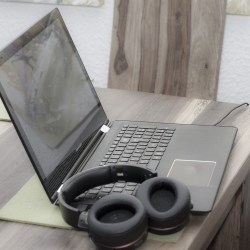March 19, 2021
Search Results for: motivat
March 18, 2021
Toxic workplace culture costing UK economy £20.2 billion per year
by Jayne Smith • News, Wellbeing, Working culture
 The cost of poor company culture is a staggering £20.2 billion per year, according to research from HR software provider Breathe. The report ‘The Culture Economy 2021’, claims that almost a third (27 percent) of SME employees quit their job due to poor workplace culture, an increase of 6 percent from last year (21 percent). (more…)
The cost of poor company culture is a staggering £20.2 billion per year, according to research from HR software provider Breathe. The report ‘The Culture Economy 2021’, claims that almost a third (27 percent) of SME employees quit their job due to poor workplace culture, an increase of 6 percent from last year (21 percent). (more…)
March 12, 2021
‘Thank God it’s Friday’ – Employee behaviour improves throughout the week
by Jayne Smith • News, Wellbeing, Working lives
 Individuals with low mindfulness exhibit more uncivil behaviour at work and are least civil on Monday before improving throughout the week, claims new research from BI Norwegian Business School and Maastricht University. (more…)
Individuals with low mindfulness exhibit more uncivil behaviour at work and are least civil on Monday before improving throughout the week, claims new research from BI Norwegian Business School and Maastricht University. (more…)
March 12, 2021
Indoor air quality is more important than ever, and Tarkett is leading the way
by Freddie Steele • Company news, Wellbeing, Workplace design
 The pandemic has certainly opened our eyes to the importance of constantly washing our hands, sterilising everything in sight and realising just how far germs can travel through the air, causing us to wince at the thought of a time where we huddled on public transport without masks. However, as we contemplate heading back to the office in the near future, businesses need to translate these learnings into workplace design and move indoor air quality to the top of the agenda. (more…)
The pandemic has certainly opened our eyes to the importance of constantly washing our hands, sterilising everything in sight and realising just how far germs can travel through the air, causing us to wince at the thought of a time where we huddled on public transport without masks. However, as we contemplate heading back to the office in the near future, businesses need to translate these learnings into workplace design and move indoor air quality to the top of the agenda. (more…)
March 8, 2021
The new dimensions of workplace wellbeing
by Beatriz Arantes • Features, Wellbeing, Workplace design
 A healthy, engaged and productive work environment starts with conversations about people’s needs. So whether you have always been on a co-located team or are a veteran of remote work, there are new circumstances and the old rulebook doesn’t quite help. The change has been sudden, in a sustained moment of uncertainty, and has disrupted employee routines and support structures. (more…)
A healthy, engaged and productive work environment starts with conversations about people’s needs. So whether you have always been on a co-located team or are a veteran of remote work, there are new circumstances and the old rulebook doesn’t quite help. The change has been sudden, in a sustained moment of uncertainty, and has disrupted employee routines and support structures. (more…)
March 1, 2021
Zoom fatigue is real and has four basic causes
by Neil Franklin • News, Technology, Wellbeing
 The much discussed idea of Zoom fatigue turns out to be a real phenomenon according to new peer reviewed research from Stanford academics. The study published in the American Psychological Association’s journal Technology, Mind, and Behaviour found that meetings conducted via video calls leave participants feeling more exhausted and emotionally drained than those held face to face. The study found the four most important factors that make video calls so exhausting; the constant need for eye contact, the ability to see one’s own face constantly during meetings, the need to sit still for long periods and difficulties in interpreting or communicating via body language. (more…)
The much discussed idea of Zoom fatigue turns out to be a real phenomenon according to new peer reviewed research from Stanford academics. The study published in the American Psychological Association’s journal Technology, Mind, and Behaviour found that meetings conducted via video calls leave participants feeling more exhausted and emotionally drained than those held face to face. The study found the four most important factors that make video calls so exhausting; the constant need for eye contact, the ability to see one’s own face constantly during meetings, the need to sit still for long periods and difficulties in interpreting or communicating via body language. (more…)
February 24, 2021
Isolation of employees is IT teams’ greatest home-working concern
by Jayne Smith • News, Technology
 The feelings of isolation being experienced by employees is the biggest concern IT and cybersecurity teams have around home working, say almost one third (31 percent) of respondents to the latest Twitter poll run by Infosecurity Europe. The objective was to investigate views on the current threat landscape, as remote working remains the norm and ‘lockdown fatigue’ sets in. (more…)
The feelings of isolation being experienced by employees is the biggest concern IT and cybersecurity teams have around home working, say almost one third (31 percent) of respondents to the latest Twitter poll run by Infosecurity Europe. The objective was to investigate views on the current threat landscape, as remote working remains the norm and ‘lockdown fatigue’ sets in. (more…)
February 19, 2021
A new mindset on climate change is emerging from the pandemic
by Aki Stamatis • Comment, Environment
 Of all the opportunities for positive change driven by the pandemic, the most important may be the least talked about. And that’s in spite of the fact that both workers and organisations as well as governments and other bodies around the world are aware and in favour of it and its consequences are most far reaching, affecting us all. It is, of course, the chance to do something significant about climate change and the environment. (more…)
Of all the opportunities for positive change driven by the pandemic, the most important may be the least talked about. And that’s in spite of the fact that both workers and organisations as well as governments and other bodies around the world are aware and in favour of it and its consequences are most far reaching, affecting us all. It is, of course, the chance to do something significant about climate change and the environment. (more…)
February 18, 2021
Self-employed workers and side hustlers to drive the UK’s economic recovery
by Jayne Smith • Business, News
 Research released by Mettle and YouGov estimates that the UK’s growing self-employed and side hustler movement will contribute an estimated £125 billion in turnover to the UK’s economic recovery in 2021. Furthermore, small and medium-sized businesses (with 1-49 employees) are estimated to contribute approximately £310.46 billion. (more…)
Research released by Mettle and YouGov estimates that the UK’s growing self-employed and side hustler movement will contribute an estimated £125 billion in turnover to the UK’s economic recovery in 2021. Furthermore, small and medium-sized businesses (with 1-49 employees) are estimated to contribute approximately £310.46 billion. (more…)
February 17, 2021
More than half of UK workers planning to take on a side hustle
by Jayne Smith • Business, News, Working lives
February 12, 2021
Mental health related workplace absenteeism costs soared to £14bn in 2020
by Jayne Smith • Business, News, Wellbeing
 The impact of the nation’s deteriorating mental health from Covid-19 lockdowns and other restrictions cost UK businesses £14bn last year, according to a study by Westfield Health. The cost of absenteeism from work due to mental health reasons increased last year by £1.3bn from 2019’s totals as work from home, travel restrictions, furlough and pay cuts changed the workplace for millions of people across the UK. (more…)
The impact of the nation’s deteriorating mental health from Covid-19 lockdowns and other restrictions cost UK businesses £14bn last year, according to a study by Westfield Health. The cost of absenteeism from work due to mental health reasons increased last year by £1.3bn from 2019’s totals as work from home, travel restrictions, furlough and pay cuts changed the workplace for millions of people across the UK. (more…)
















 Over half (54 percent) of UK workers say they are more open to taking on a side hustle or freelance work since the Covid-19 pandemic, according to new research from
Over half (54 percent) of UK workers say they are more open to taking on a side hustle or freelance work since the Covid-19 pandemic, according to new research from 








February 25, 2021
False positives and the dangers of unrealistic positivity at work
by Jeff Miller • Comment, Wellbeing, Working culture